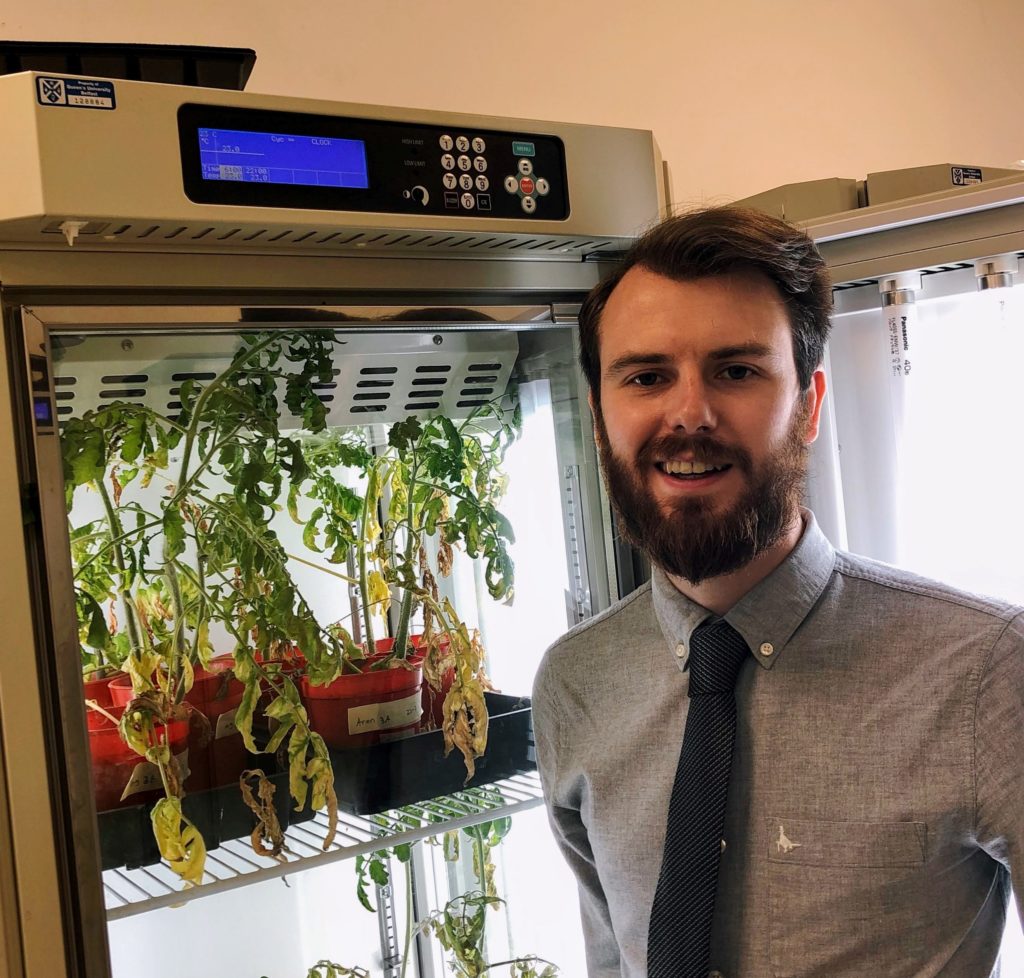
| Academic Year | 2020-2021 |
| rweir12@qub.ac.uk | |
| Institution | Queen's University, Belfast |
Biography
School: School of Biological Sciences
Project: Temperature regulation of crop – rhizosphere ecology
Supervisors: Professor Aaron Maule & Dr Cecile Gubry-Rangin
Undergraduate Education: BSc (HONS) Microbiology with Professional Studies, Queen’s University Belfast
Postgraduate Education: N/A
Research: My research is focused on interactions between crop plants and the ecosystem around their roots. These interactions have been directly linked to crop plant health and further studies suggest that these interactions can be manipulated.
A highly diverse community inhabits an area called the rhizosphere (the area of soil in contact with a plants root system), it is made up of many protagonists and antagonists. One of the biggest antagonists in the rhizosphere are plant parasitic nematodes (PPN’s) such as root knot nematode Meloidogyne incognita which severely limits yield in food systems worldwide. These root knot nematodes as parasitic organisms feed from the plants root system negatively affecting plant growth, leading to a decline in both quality and yield of crops and reducing resistance to other stresses such a drought.
Our rhizosphere protagonists are the symbiotic organisms such as Bacillus subtilis a soil microbe shown to from a protective biofilm around roots. Arbuscular mycorrhizal fungi such as Glomus coronatum also from symbiosis with root systems increasing water availability and priming plant defence systems against blight and PPN’s.
My research explores how changes in climate will impact these interactions. Environmental changes will have an impact on the plant’s metabolism and other biological processes. One major process is the production and release of plant root exudate; a chemical released into the rhizosphere by root tips. This chemical cocktail is the plants key method of communication with the rhizosphere community and can entice our rhizosphere protagonists to form their symbiosis with the root system. However, these communications can also be hijacked by PPN’s who follow the chemical trail right to the root tip and infect crop plants.
Preliminary data suggests that different members of the rhizosphere community are attracted to different chemical components of the plant root exudate. Further still temperature impacts the composition of plant root exudate suggesting that global climate change may have adverse impacts on already delicately balanced plant-rhizosphere interactions.
Other:
- Twitter: @RT_Weir
- Check out Frontiers for Young Minds for simple well communicated science





















































